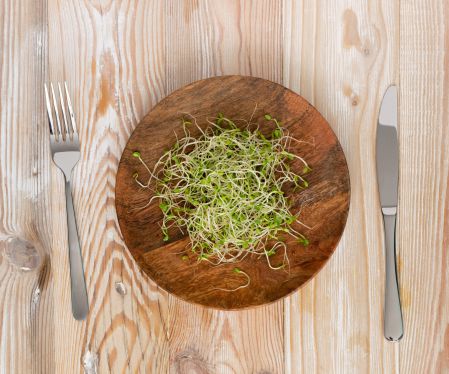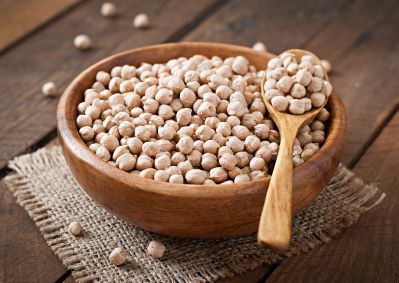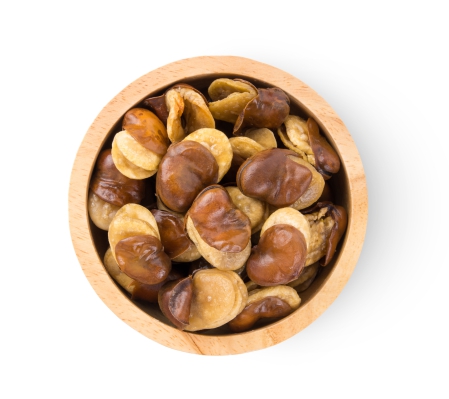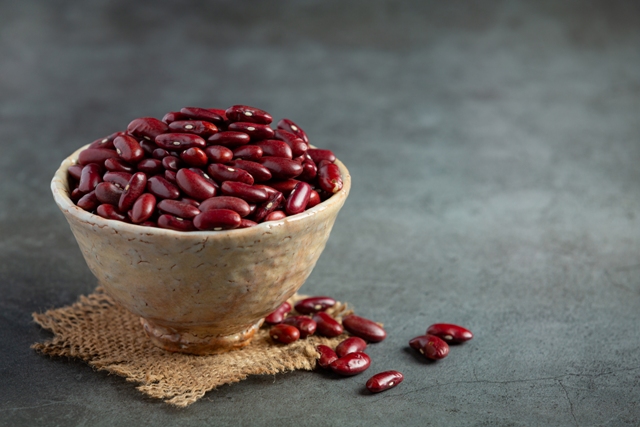Sprout is one of the most important food stuffs belongs to leguminous family. Sprouts are rich in nutrients as well as antioxidant and serve numerous biological functions within body.
Types
Below table will show an overview of sprout’s type –
| Types | Characteristics |
| Mung bean sprouts |
|
| Fenugreek Sprouts |
|
| Wheat Sprouts |
|
| Gram Sprouts |
|
Nutritive value
 It contains carbohydrate
It contains carbohydrate- It is rich in fibre (especially insoluble fibre)
- It contains various amino acids
- It contains unsaturated fatty acids (both MUFA and PUFA)
- It contains several vitamins like Vitamin A, Vitamin C, Vitamin K, Vitamin E and Vitamin B complex
- It contains numerous minerals such as iron, copper, magnesium, manganese, selenium, zinc, calcium, sodium and phosphorus
- It is also rich in phytonutrients that are responsible for performing various biological functions
Germination
- It is a natural process through which an organism grows from a seed
- Germination enhances the nutritive value of the food stuff in many folds. Consumption of germinated sprout is comparatively healthier
- It has seen that seeds require proper oxygen, temperature and water to germinate
- Germination generally occurred by five steps, which include –
- Filling of water within seed
- Activation of enzymes responsible for plant’s growth
- Seed grows a root for assessing water underground
- Seed also grows shoots towards sun
- Finally, the shoots grow leaves
Nutritional significance of germination
- Germination increases Vitamin C content of sprouts
- It reduces the concentration of anti-nutritional factors in sprouts
- It also enhances the amino acid contents of sprouts
- It increases the content of essential fatty acids of sprouts
- It is also responsible for breaking down the starch molecules of sprout that help to increase its nutrient density as well as its digestibility

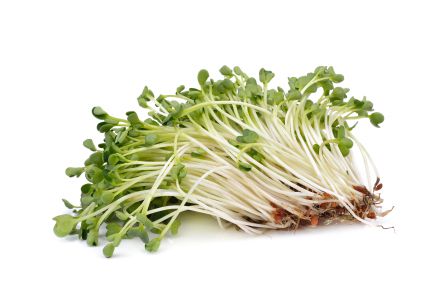
Health benefits
Role on digestive health
- Insoluble fibre contents of sprout are responsible for improving bowel movement as it helps to increase the mass of the stool as well as make the stool soft that results in easy defecation that prevents constipation
- Sprouts contain various living enzymes thus its consumption is closely related with improving digestion
- It also helps in improving nutrient absorption
- It is associated with boosting up the metabolic processes of body as it provides Vitamin B complex abundantly, which act as cofactor for several enzymes involved in metabolic reactions
- It helps to prevent acidity as it is alkalizing to the body
Role on immunity
- It is associated with strengthening the immune system by supplying significant amount of Vitamin C as well as Vitamin A within body
- Vitamin A content of sprout is responsible for increasing the synthesis of WBC within body, which is accountable for defending the body from pathogens through phagocytosis
- It also helps to increase the resistance power of body, which is associated with enhancing the body’s ability for fighting against infectious diseases
- Vitamin C content of sprout acts as a strong antioxidant that helps to protect the body from free radical induced oxidative damages. It also facilitates rapid wound healing

Role on eye health
- It helps to improve the vision as well as eyesight
- Its Vitamin A component is responsible for reducing the prevalence of various eye disorders like conjunctivitis, corneal xerosis, xerophthalmia and keratomalacia
- Its antioxidant activities are responsible for protecting the eye from oxidative damages, which is associated with reducing the susceptibility of developing cataract, macular degeneration and glaucoma
Role on muscle
- The amino acid contents of sprouts are responsible for improving muscle mass
- It is also associated with developing stem cells within muscle that helps in muscle growth and repairing
Role on skin
- Antioxidant component of sprouts help to protect the skin from damages and promotes skin health
- Vitamin C content of sprout is associated with collagen synthesis that improves skin elasticity
- It also helps to reduce the prevalence of acne and other dermatological disorders by preventing skin inflammation
- It helps to prevent dullness of skin
- It also helps to prevent ageing
- Silica is another important component found in sprout is responsible for re-synthesizing connective tissues of skin

Role on hair
- It helps in hair growth
- Zinc component of sprout is related with stimulating sebum production in scalp that protects hair follicles and helps in the regeneration of scalp cells
- It helps to make the hair thick and long
- Selenium component of sprout is responsible for inhibiting fungal infection within scalp and prevents dandruff
- Antioxidant activities of sprout are accountable for reducing the prevalence of premature graying of hair
Role on improving sexual functions
- Selenium component of sprout helps in improving sperm quality that facilitates reproduction
- It also enhances the motility of sperms
- It is associated with preventing the erectile dysfunction as it helps to boost blood circulation

Anti-carcinogenic effects
- Phyto active components of sprout are responsible for exerting potent anti-carcinogenic activities
- It helps to suppress the growth of malignant cell by inducing apoptosis
- It also helps to prevent metastasis and hence reduces the severity of cancers
Therapeutic advantages
Cardio protective effects of sprout
- It is extensively used for improving cardiac functionality
- Its omega-3-fatty acid content is responsible for protecting the heart from damages as it helps to supply HDL within body
- Its fibre content is also responsible for decreasing LDL concentration and its oxidation within body that helps to inhibit the development of atherosclerosis, coronary artery diseases, strokes and heart attacks
- Its anti-inflammatory property helps to reduce the stress on cardiovascular system that helps to decrease cardiac morbidity and mortality rate

Effect on blood circulation
It helps to improve blood circulation by maintaining the count of red blood cells, which is associated with increasing the supply of nutrients as well as oxygen to every cell for supporting cellular functions
Hypoglycemic effects of sprouts
- It is better to include sprouts in the diet of a diabetic person as it plays significant role in reducing the prevalence of hyperglycemia
- It helps to reduce blood sugar level by regulating the activity of amylase (carbohydrate splitting enzymes)
- Fibre content of sprout also plays significant role in reducing blood sugar level by decreasing glucose absorption through intestinal epithelial cell
Effect on weight management
- It is a good option for reducing body weight as it is considered as low caloriegenic food
- It also exerts a feeling of satiety that reduces food intake hence facilitates weight reduction
- It also helps to inhibit ghrelin secretion that regulates appetite

It is widely used as an effective preventive measure for anemia as it provides significant amount of iron as well as copper
General consideration of consuming sprouts
- Sprouts should be washed well before consumption
- It is better to consume sprouts raw, as cooking may destroy nutrients
- Sprouts can also be consumed after steaming (as steaming helps to retain nutrients)
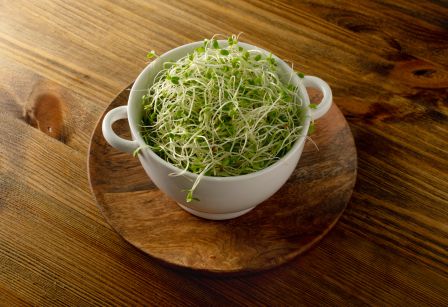
Source:
Benincasa, P., Falcinelli, B., Lutts, S., Stagnari, F. and Galieni, A., 2019. Sprouted grains: A comprehensive review. Nutrients, 11(2), p.421.
Davis, J.N., Ventura, E.E., Cook, L.T., Gyllenhammer, L.E. and Gatto, N.M., 2011. LA Sprouts: a gardening, nutrition, and cooking intervention for Latino youth improves diet and reduces obesity. Journal of the American Dietetic Association, 111(8), pp.1224-1230.
Díaz, M.F., Martín, M.A., Martínez, M., Savón, L., Aguilera, Y., Benítez, V., Torres, V., Coto, G., González, A., Sarmiento, M. and Hernández, Y., 2018. A temporary legume sprouts: An alternative for animal feeding. Cuban Journal of Agricultural Science, 51(3).
Erba, D., Angelino, D., Marti, A., Manini, F., Faoro, F., Morreale, F., Pellegrini, N. and Casiraghi, M.C., 2019. Effect of sprouting on nutritional quality of pulses. International journal of food sciences and nutrition, 70(1), pp.30-40.
Gan, R.Y., Lui, W.Y., Wu, K., Chan, C.L., Dai, S.H., Sui, Z.Q. and Corke, H., 2017. Bioactive compounds and bioactivities of germinated edible seeds and sprouts: An updated review. Trends in Food Science & Technology, 59, pp.1-14.
Jribi, S., Molnàr, H., Antal, O.T., Adànyi, N., Kheriji, O., Naàr, Z. and Debbabi, H., 2019. Zinc fortification as a tool for improving sprout hygienic and nutritional quality: a factorial design approach. Journal of the Science of Food and Agriculture, 99(11), pp.5187-5194.
Penfield, S., 2017. Seed dormancy and germination. Current Biology, 27(17), pp.R874-R878.
